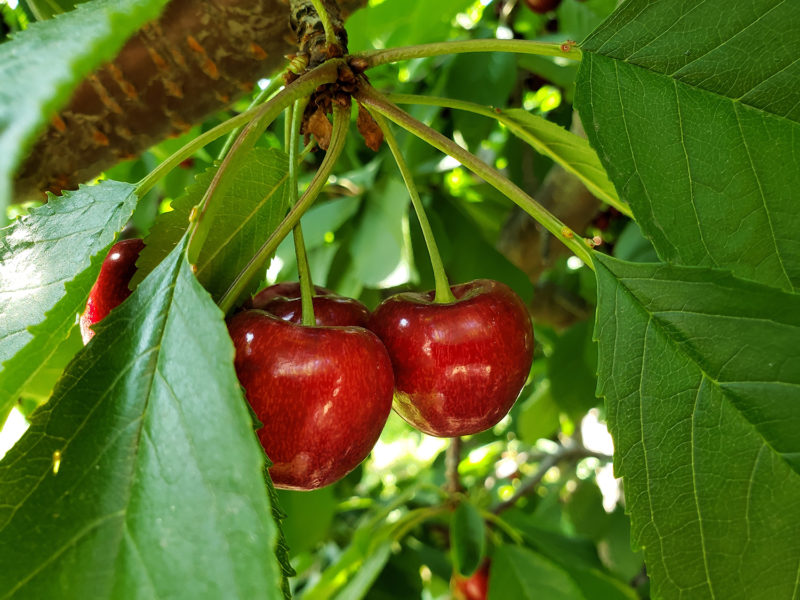KELOWNA – Export markets for BC cherries remain a priority for the BC Cherry Association, which held its annual general meeting February 18-19 via videoconference.
During the two morning sessions, association president Sukhpaul Bal highlighted the trade mission to India early last year which helped drive a 1,200% increase in the value of BC cherry exports to that country in 2020. Growth is expected to continue this year.
Bal praised the leadership and hard work of the board in finding solutions to pandemic-related labour challenges, praising the province for stepping up to cover the accommodation, meal and laundry costs of foreign workers during their mandatory 14-day quarantine.
“We were frankly shocked, but it was such an important step,” Bal said.
The marketing committee is now led by Richard Isaacs, the commercial director at Global Fruit, based in Creston. Issacs moved to BC two years ago from the United Kingdom where he was previously supply chain director with Chaucer Foods Ltd.
“I’ve looked at and bought cherries from 19 countries,” he told growers, “and I moved here because BC cherries are the best.”
Isaacs noted the success of sales in Japan last year, which he expects to continue in 2021. But he also cautioned growers to pay attention to documentation, pallet configuration and labelling so that their fruit is compliant with Japan’s import regulations.
The association is also working with the Canadian Food Inspection Agency to open South Korea to BC cherries. There’s been steady progress, and CFIA was able to confirm the day before the annual meeting that the latest process document had been sent to South Korea. Included was a request for a pilot program with two packing houses this summer. The association hopes to keep up the momentum, noting that if foreign inspectors can’t come to Canada, virtual inspections may be an option.
“CFIA were happy to pass that request on. It would also save us a lot of money if we can do that electronically,” says Isaacs.
Trade and Invest BC offices in Seoul and Vancouver have helped connect potential buyers with interested exporters in anticipation of the market opening to BC cherries.
Growers were cautioned to stay up-to-date on the cherry treatment products foreign countries will accept.
At the end of 2019, the European Union surprised Canada by halting imports of cherries. Fortunately, new insect trapping protocols were agreed to and implemented in 2020, helping to keep that market open. The association has subscribed to the Bryant Christie pesticide database to provide growers with the most current maximum residue limits (MRLs) requirements. The database will be available to growers via the association’s website.
BC cherry growers send 90% of their exports to the US, China and Hong Kong. While future marketing efforts may target Mexico, Brazil, Israel and Australia, nothing can come close to the top three markets.
The association is in a healthy financial position, although revenues are expected to fall this year because it is waiving membership dues for 2020 members. Treasurer Erin Carlson forecasts revenues of about $301,000 in 2021, compared to about $420,000 in 2020.
However, cost savings are also on the radar. The bulk purchase of insect traps in 2020, required for crop monitoring as part of export requirements, mean none are required this year. Of the $50,000 earmarked for 2021 research, only $37,900 is allocated, leaving cash for any additional projects that come forward. The federal and provincial governments were recognized for their commitment to funding programs.
Carlson stressed that the association needs to establish a better grasp of cherry production in the province. She raised the possibility of a producer survey to determine the extent of new plantings and potential future production.
The association focused its marketing efforts within Canada last year, thanks to concerns around foreign demand as well as a short crop. The domestic focus is set to continue this year. “We’ve planned this before but the foreign markets have taken time to develop, and now we have time to work on domestic marketing,” Bal said.


 Ranchers plead with province to address elk issue
Ranchers plead with province to address elk issue